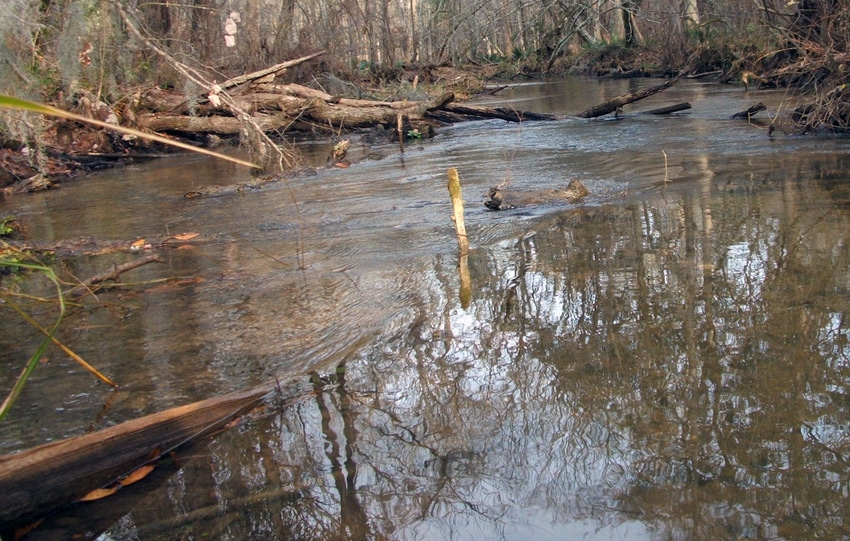June 14, 2021

Alabama farmers joined businesses, local governments, and landowners across the country in expressing concern over Wednesday’s decision by the Environmental Protection Agency (EPA) to reverse the Navigable Waters Protection Rule (NWPR).
Federation National Affairs Director Mitt Walker said the announcement sets in motion another drawn-out debate over EPA’s enforcement authority and application of the Clean Water Act.
“It is terribly disappointing that the Biden Administration is taking action to withdraw and replace the Trump-era rule that finally brought some clarity to the regulatory process,” Walker said. “It appears the agencies have chosen to totally discount the benefits of state-level regulations and voluntary conservation programs embraced by farmers. This is another attempt to exert more control over farmers and private citizens based on rhetoric rather than science.”
Walker said the NWPR will remain the law of the land while EPA drafts a new rule. Any new interpretation will likely face court challenges, and it could be years before the issue is resolved.
The NWPR replaced EPA’s controversial Waters of the United States (WOTUS) rule. Under the Obama-era rule, EPA could have extended its authority beyond navigable waters to include “waters” as small as wet-weather ditches and springs.
American Farm Bureau Federation President Zippy Duvall said reversal of the NWPR will create uncertainty and confusion for farmers and ranchers.
“The American Farm Bureau Federation is extremely disappointed in the Environmental Protection Agency’s announcement of its intention to reverse the environmentally conscious Navigable Waters Protection Rule, which finally brought clarity and certainty to clean water efforts,” Duvall said. “Farmers and ranchers care about clean water and preserving the land, and they support the Navigable Waters Protection Rule.
EPA Administrator Michael Regan said the agency determined the current rule is leading to “significant environmental degradation.”
“We are committed to establishing a durable definition of ‘waters of the United States’ based on Supreme Court precedent and drawing from the lessons learned from the current and previous regulations, as well as input from a wide array of stakeholders, so we can better protect our nation’s waters, foster economic growth, and support thriving communities,” he said.
Duvall said EPA failed to engage farmers and landowners before announcing plans to repeal the rule.
“Administrator Regan recently recognized the flaws in the 2015 Waters of the U.S. Rule and pledged not to return to those over-reaching regulations. We are deeply concerned that the EPA plans to reverse the Navigable Waters Protection Rule, which puts the future of responsible protections at risk,” Duvall said.
“We expected extensive outreach, but today’s announcement fails to recognize the concerns of farmers and ranchers. This is an important moment for Administrator Regan and will be pivotal to his ability to earn the trust of farmers on this and other administration priorities. He must keep his word to recognize the efforts of agriculture and not return to flawed, overly complicated and excessive regulations.”
Duvall challenged Regan and Secretary of Agriculture Tom Vilsack to study the impact on farmers before implementing burdensome rules.
“We call on EPA to respect the statute, recognize the burden that over-reaching regulation places on farmers and ranchers, and not write the term ‘navigable’ out of the Clean Water Act. On this issue, and particularly prior converted croplands and ephemerals, we also urge Secretary Vilsack to ensure that we don’t return to the regulatory land grab that was the 2015 WOTUS Rule,” he said. “Clean water and clarity are paramount, and that is why farmers shouldn’t need a team of lawyers and consultants to farm.”
Source: Alabama Farmers Federation, which is solely responsible for the information provided and is wholly owned by the source. Informa Business Media and all its subsidiaries are not responsible for any of the content contained in this information asset.
About the Author(s)
You May Also Like




